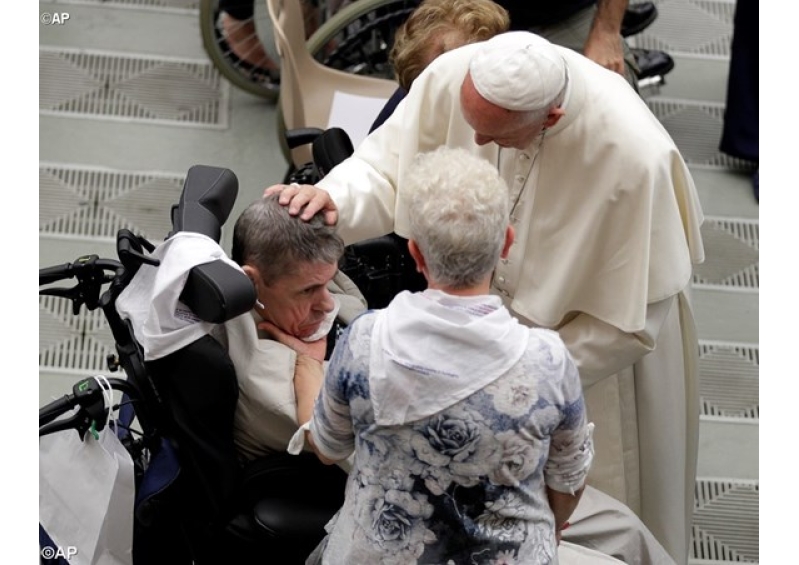
It is well known that the Catholic Church has opposed the utilization of embryos in scientific research; Pope Francis, in a gallant, gentle, but courageous way, however, reiterated the church's stance in a Vatican meeting Thursday evening.
Surrounded by families coping in various ways with Huntington's disease, Pope Francis urged his fellows in humanity to refrain from any temptation to destroy embryos---no matter how "noble" the cause:
“Some branches of research, in fact, utilize human embryos, inevitably causing their destruction. But we know that no ends, even noble in themselves, such as a predicted utility for science, for other human beings or for society, can justify the destruction of human embryos.”
The hereditary illness, which involves a gradual degeneration of brain cells, eventually overtaking the mental capacities entirely. The effects are emotional, physical, and psychological. A person's cognitive abilities are eventually dissolved, and sufferers become completely dependent on their caretakers. A medical journal describes it as follows:
"Nerve cells become damaged, causing various parts of the brain to deteriorate. The disease affects movement, behavior and cognition - the affected individuals' abilities to walk, think, reason and talk are gradually eroded to such a point that they eventually become entirely reliant on other people for their care."
Tragically, there is as of now no cure for the disease; current research, however, is making an attempt for a remedy which involves the use of embryonic stem cells. Pope Francis addressed the attitude of Christ in His ministry with the sick, assuring the affected that they are "loved by God" and are not forgotten:
"In many cases the sick and their families have experienced the tragedy of shame, isolation and abandonment. Today, however, we are here because we want to say to ourselves and all the world: ‘HIDDEN NO MORE!’”
Nonetheless, Francis encourages Christians not to grow weary in doing good. In seeking a means of healing which necessitates the taking of a life only adds to our "throw away culture."
What can be cured, the spiritual leaders insists, is our attitude towards those suffering from the disease:
"The strength and conviction with which we pronounce these words derive precisely from what Jesus himself taught us; Jesus met many sick people; he took on their suffering; he tore down the walls of stigma and of marginalization that prevented so many of them from feeling respected and loved.”
The Pope closed with a blessing on the physically unwell, as well as their caretakers:
“May the life of each of you – both those who are directly affected by Huntington’s disease and those who work hard every day to support the sick in their pain and difficulty – be a living witness to the hope that Christ has given us, even through suffering there passes a path of abundant good, which we can travel together.”






